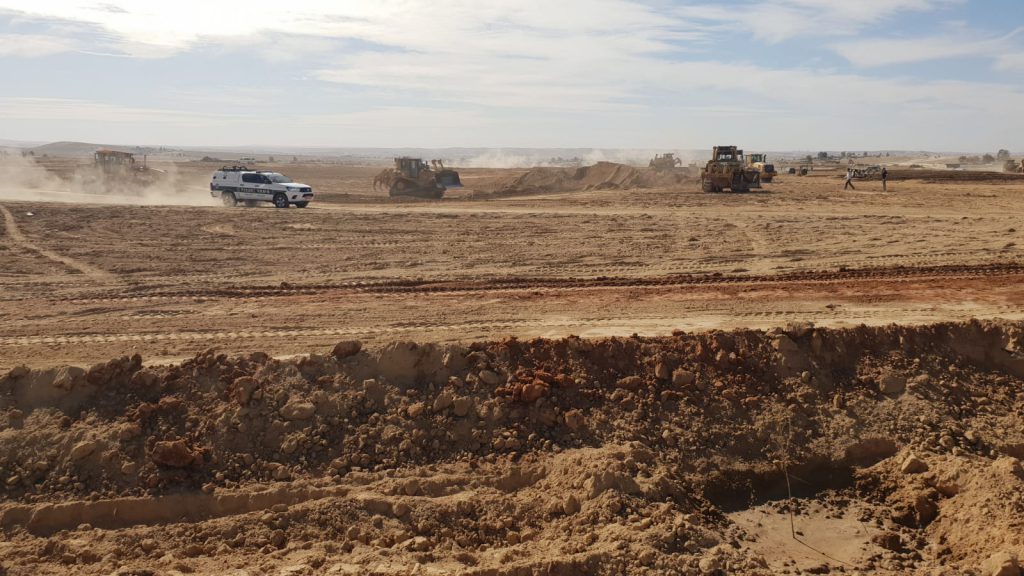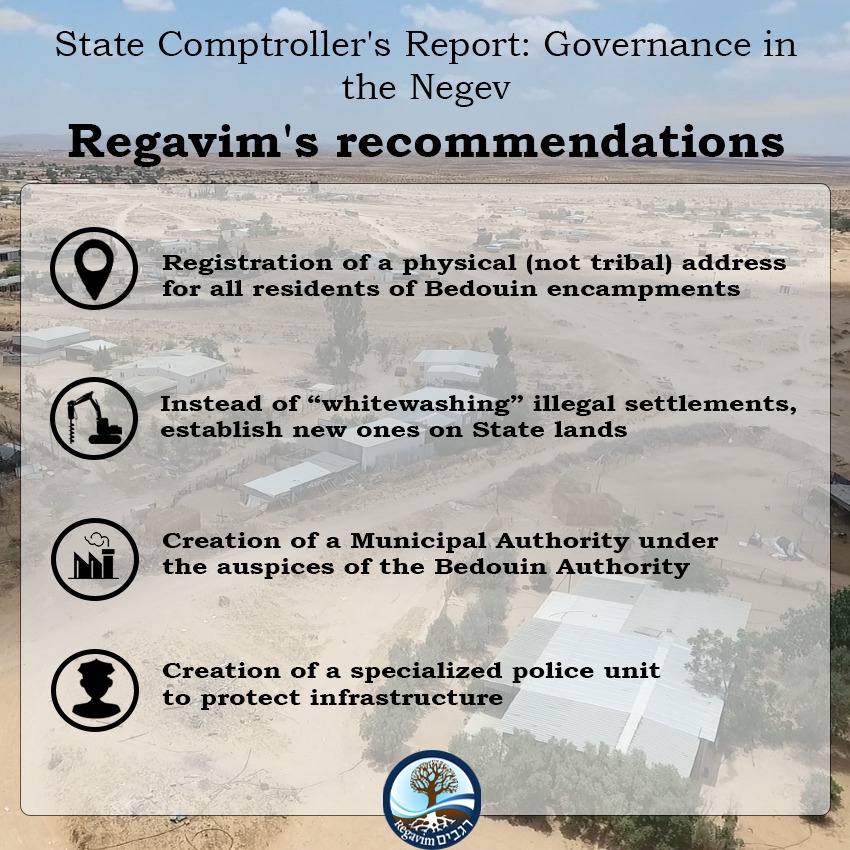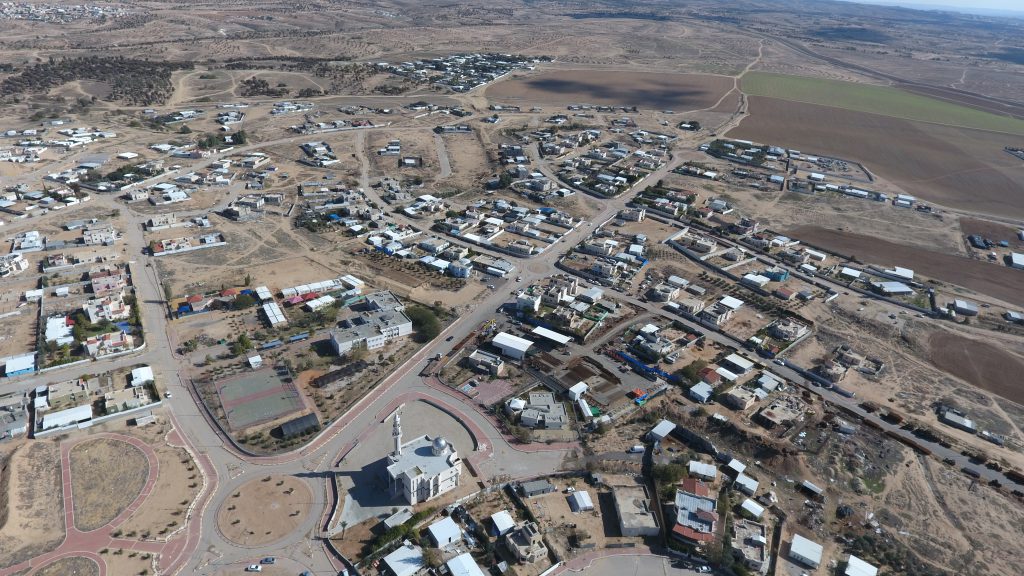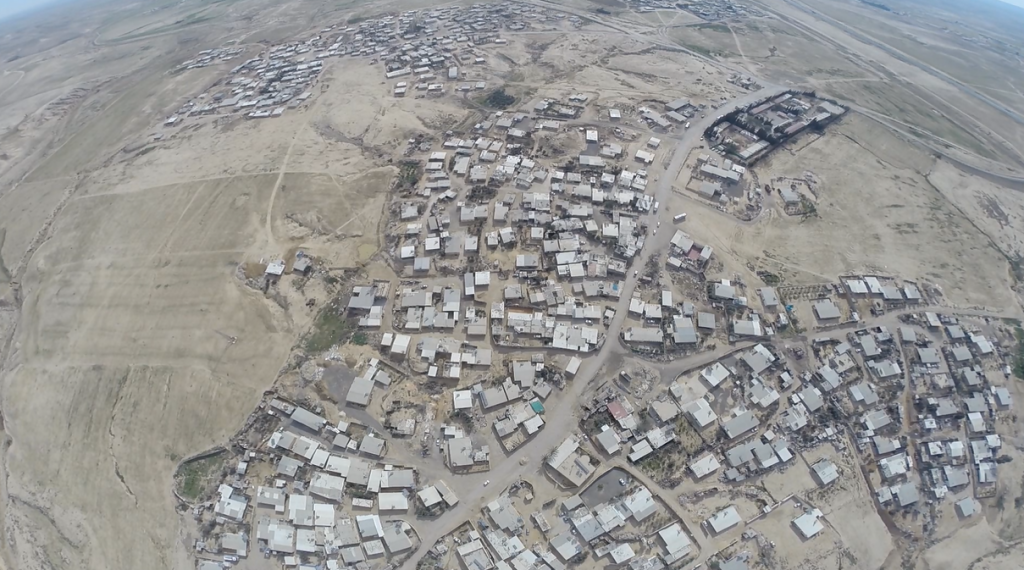כ"ג אלול התשע"ט - 23 September 2019
Regavim has uncovered a racket in which the Bedouin are paid off not to damage property they wrongly claim as their own.
Israel’s government pays millions of shekels to Bedouin under the guise of “school security” in a massive protection racket, an investigation by Israeli NGO Regavim revealed.
Regavim, which focuses on land issues, ‘followed the money’ through the judicial system, and forced the Bedouin municipalities of southern Israel to admit that every year, millions of shekels classified as “school security” expenditures simply vanish into thin air.
But vast swaths of land slated for development and construction within the municipal boundaries of the Negev’s Bedouin towns have languished for decades under the threat of violence by the self-proclaimed “owners.”
Although the Israeli government does not officially recognize these discredited ownership claims, when Bedouin municipalities build public-use structures such as schools, kindergartens and health clinics, they do so on land that has been untouched due to these phony ownership claims – and pay huge sums under the guise of “security services.”
In effect, the government is paying these “owners” not to damage the structures erected on land for which they have no legal right of ownership.
Regavim requested a breakdown of expenditures for school security in Bedouin municipalities. These budgetary items were then compared with the same data provided by Jewish municipalities in the Gaza-border region, which is classified as a high-security area.
The Naveh Midbar Bedouin municipality, which has 21 schools in its jurisdiction, spent nearly NIS 6.8 million for “security” in 2016, and a similar amount in 2017. In 2018, that expenditure rose to NIS 7.3 million.
The Al Kasum Regional Council, which provided the budgetary data we requested only after we were forced to submit a Freedom of Information petition through the courts, is home to 22 schools, and its security budget for 2016 stood at some NIS 9 million. In 2017 the security budget grew to NIS 10.5 million, and in 2018 it stood a NIS 11.7 million.
How do these sums compare with the security outlays in Gaza-border Jewish communities? The Merhavim Regional Council’s 10 schools were protected by a mere NIS 965,000 in 2016; the cost of security remained unchanged in 2017.
The Bnei Shimon Regional Council, which provides security for 7 schools, spent NIS 690,000 in 2016, and only NIS 665,000 in 2017.
The Ministry of Education does not cover security costs for educational institutions in local council jurisdictions; these sums are covered by the Israel Police.
The Ministry of Interior Security, for its part, clarified that it does not employ any security personnel in the Naveh Midbar or Al Kasum Municipalities; no such position or job description exists.
The Police Department’s response to Regavim’s inquiry further clarified that the Ministry contributes hundreds of thousands of shekels per year toward the security budget of the older, more well-established Bedouin towns of Hura and Lakiya, but these outlays do not hold a candle to the astronomical sums spent in Naveh Midbar and Al Kasum.
Regavim discovered this isn’t the end of the saga. On-site inspections in the schools of Naveh Midbar and Al Kasum proved that there is no security at all. The gates are wide open, anyone and everyone can come and go at will; no guard posts, no guards.
The security budget for each of these institutions is NIS 30,000 per month – whether there are 1000 students, or 80 students. The municipalities explained that this is spent for “night-time security,” a recognized expense only for dormitory schools (which do not exist in the Negev Bedouin sector).
“These findings indicate that the municipalities in question are paying “internal protection money” to the people who claim ownership of the land on which the schools were built,” says Amichai Yogev, Regavim’s Field Coordinator for the Southern Region.
“The official documents provided by the municipalities do not answer the real question – where is all of this money going – but they do illustrate beyond a shadow of doubt that these inflated budgets are a mechanism of unparalleled, hard-core corruption.”
“According to data provided by the Central Bureau of Statistics, over 95% of these municipalities’ budgets is funded by the government through a variety of ministries, and they are classified in the lowest cluster of the socioeconomic scale,” Yogev emphasizes.
“The bottom line is that the money that could and should be used for the benefit and welfare of the students is ending up in someone’s pocket. Someone is enjoying a fat payoff, at the expense of the very real and very critical needs of the community as a whole. The Israel Police must conduct a full and thorough investigation, and bring the guilty parties to justice.”
This article appeared on World Israel News














